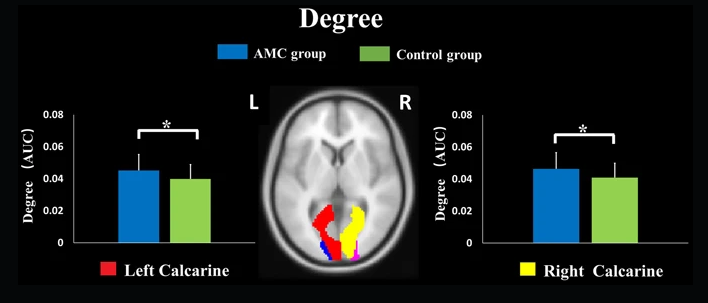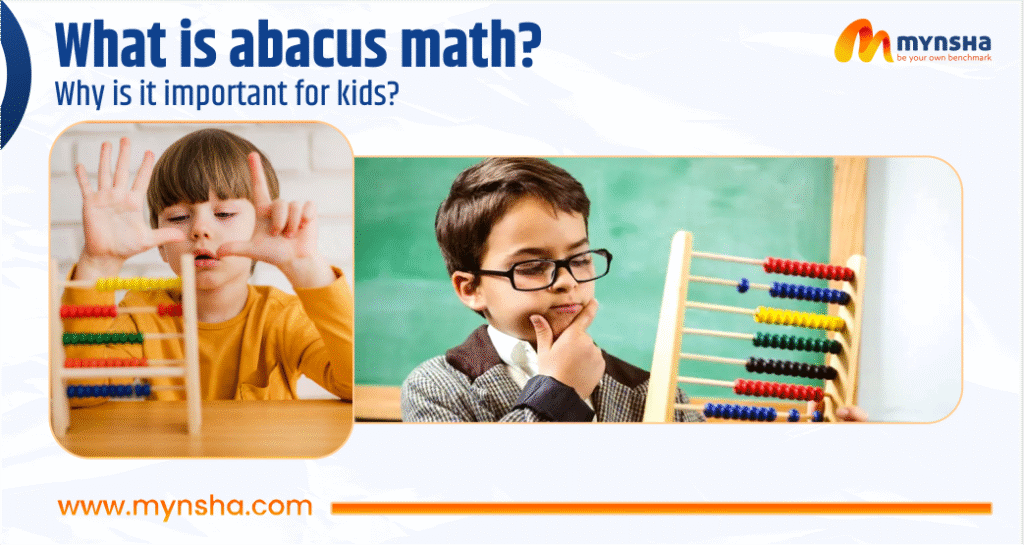Because there are many distractions online nowadays, both teachers and parents are paying close attention to sharpening math skills in students. Abacus maths provides a dynamic, visual learning experience that helps learners grasp essential foundational concepts in arithmetic through tactile engagement rather than rote memorization. More than a centuries-old instrument, abacus mathematics supports cognitive development, enhances concentration, and encourages learners to approach mathematical challenges with curiosity and confidence. Here, we’ll learn about the abacus and its usefulness as a math teaching aid in schools today.
What is Abacus Maths?
Abacus maths is a hands-on approach to learning arithmetic that strengthens a student’s numeracy skills through visual learning and physical interaction. Rather than learning numbers by heart, students use an abacus, which has sliding beads, to solve problems in addition, subtraction, multiplication and division. By using this technique, students see the reasoning behind the steps in maths problems.
Over the centuries, communities in Asia, such as China, Japan, and India, have turned to the abacus for both commercial and educational purposes. Today, abacus mathematics has evolved beyond its wooden frame. Learners are exposed to concepts where they learn to picture the beads mentally to resolve problems while still benefiting their brains by strengthening memory, focus and concentration. With the rise of digital platforms, abacus maths is also available online, making it accessible and interactive for students worldwide.
As more classrooms around the world adopt abacus maths, it’s clear that this method makes learning maths easier, more engaging, and less intimidating for students. What causes it to be so highly effective? Let’s explore the key benefits of abacus mathematics and how it supports learning in and beyond the classroom.
Benefits of Abacus Learning
1. Enhances Arithmetic Skills with Fun and Focus
One of the most significant strengths of abacus mathematics is its ability to build a strong foundation in basic number operations. By getting plenty of chances to practice, children can easily improve at being accurate and fast at solving maths. Over time, they begin to approach mathematics solving problems not as a challenge but as an enjoyable skill. Being playful in finding solutions boosts students’ confidence and supports their independent thinking in the classroom.
2. Boosts Concentration and Visual Memory
Unlike other methods, using the abacus teaches students to see each step of a calculation and perform mental math. As a result, both parts of the brain are involved, aiding development and helping to remember details more easily.
A paper published in Frontiers in Neuroscience reported that using the abacus for mental arithmetic training in youngsters helped improve their working memory and their processing of numbers and caused brain changes in the frontal-parietal and occipital-temporal regions. Because of this, students have a better ability to concentrate, remember facts better, and be more attentive to every subject.
(Source: Frontiers)
3. Encourages Logical Thinking and Reasoning
Abacus maths teaches children to approach problems step-by-step, cultivating strong logical reasoning skills. Pupils learn to view place value, carryover and regrouping as steps that work as a system, while before, they only saw them as rules. They become helpful when you need to work on assignments involving words, repetitions or analysis in school.
In the study “The Effects of Long-term Abacus Training on Brain Networks,” scientists found that using the abacus for mental maths made certain brain networks stronger in children.

The bar charts in the image show that the (abacus-based mental calculation) AMC group (blue) had higher nodal degrees (more brain connectivity) in both the left and right calcarine sulcus compared to the control group (green). The asterisks (*) above the bars and the mention of p < 0.05 indicate that the differences are statistically significant — meaning they are likely due to the abacus training and not random chance.
The image and charts reveal that the abacus group had stronger activity in both calcarine sulcus areas, a part of the brain used for visual learning. As a result, using an abacus may help develop attention, memory, and problem-solving skills as it strengthens connections in the brain.
(Source: Scientific Report by Nature)
4. Reduces Math Anxiety by Making It Enjoyable
For a lot of kids, regular maths lessons may seem hard. Abacus learning reverses this issue. Through math for fun games, interactive exercises, and friendly competition, students begin to enjoy numbers and build a positive relationship with the subject. Eventually, children who were hesitant about mathematics started to appreciate and practice it more regularly, gaining more confidence.
5. Improves Academic Performance Beyond Maths
There is more to abacus learning than just learning arithmetic. Learning about science, coding, or languages becomes easier when mental agility is improved. Students learning abacus can complete exams faster since their mental arithmetic is swift. Most importantly, they begin to view challenges as opportunities and to remain interested in learning for many years ahead.
When Should Kids Start Learning Abacus?
The ideal age to introduce children to abacus maths is between 5 and 7 years. In this period, a child’s brain responds well to numeracy concepts and absorbs them with ease.
If learners begin at an early age, they can quickly adjust to receiving information through pictures and touch. It also contributes to making your memory better and helps you adapt to various situations.
To identify signs of intelligence in a child, check if they interact with numbers, enjoy counting objects or are able to focus for a little while. If these traits are present, your child may be ready to begin exploring abacus mathematics with ease and enjoyment.
Conclusion
While playing with an abacus, children gain valuable skills in numbers and improve their memory, attention and thinking. Since it involves both brain hemispheres, it promotes brain development and boosts a person’s self-confidence.
To provide your child with a head start in mathematics and overall learning, consider enrolling them in abacus online maths programs like those offered by Mynsha. You will enjoy learning as their courses are taught by experts and designed to cover many topics.



